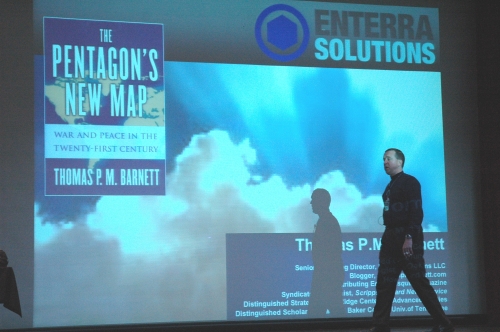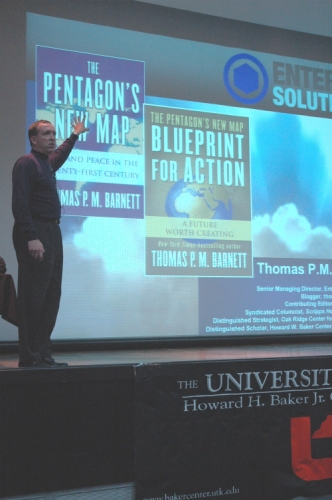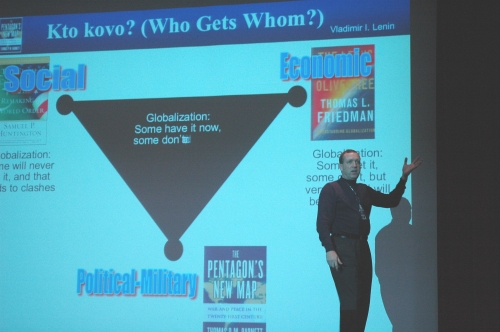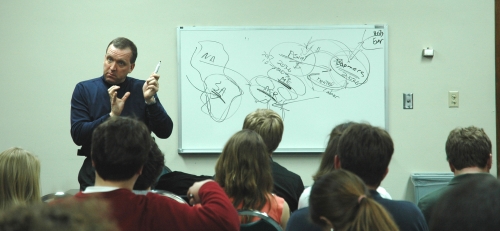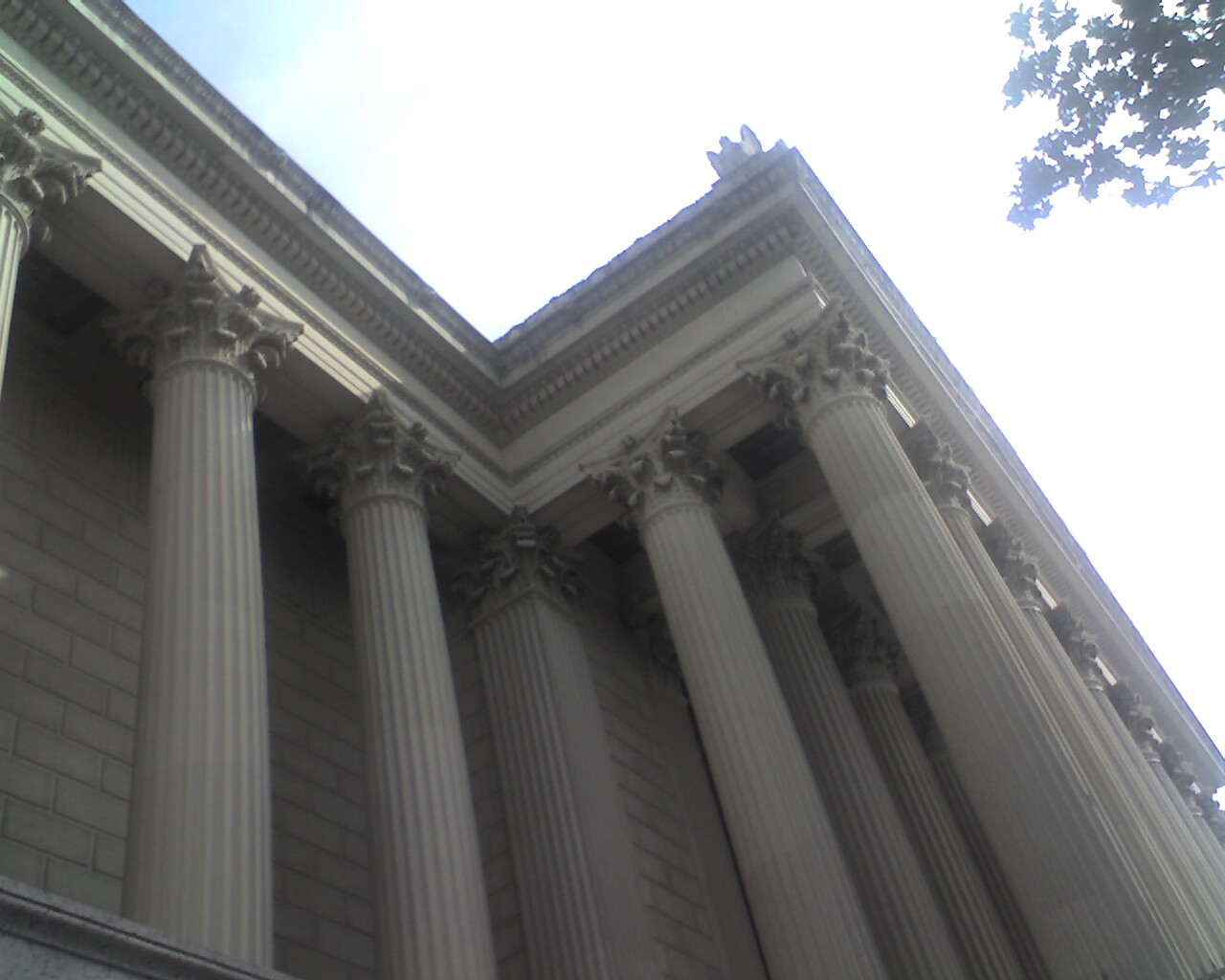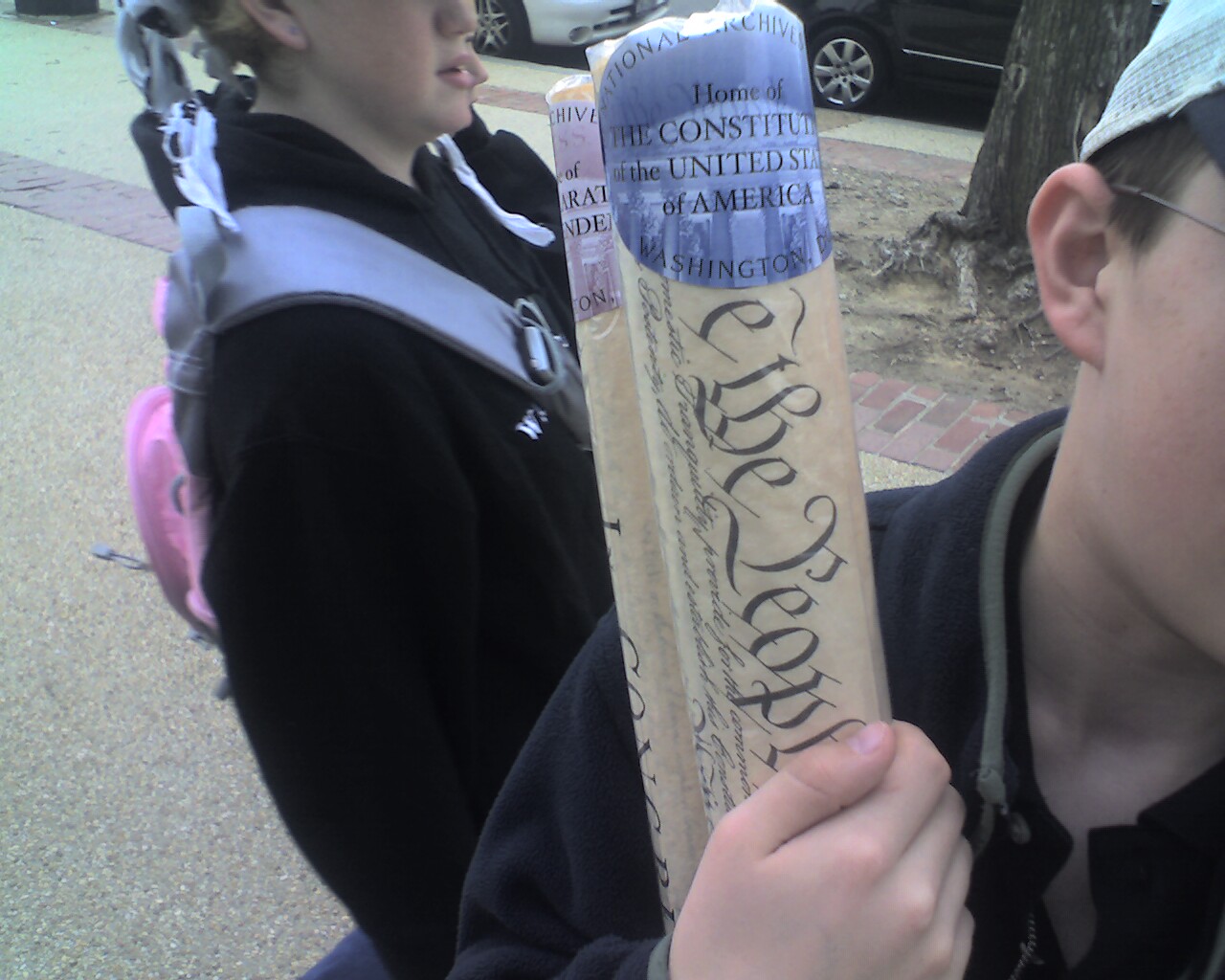According to Barnett : If China is ready to interview U.S. strategists action
Farewell press reports Wangqinchuan 1951 / influence over China's economic and political influence to larger security. From a long-term view, China will not only affect the world economy and into the mainstream. refused to concerns about the powers of the world are important safety issues involved
U.S.-China relations will become even closer, or even antagonistic atmosphere up? As is the rise of China as a world power, should be in the future and what kind of policy adjustment? With these questions in mind, Farewell recent telephone interview with a famous military strategist Barnett (Thomas PM Barnett).
Barnett held in 2004 and in 2005 published the "Pentagon's new blueprint" (The Pentag on ''s New Map, Putnam Publishing Group) and "Blueprint for Action : create a worthy future "(Blueprint for Action : A Future Worth Creating) two very forward-looking books, globalization, Sino-U.S. relations, the situation in the Middle East and other topics, be sure to check out unique insights into the United States after the publication of competing media reports. Barnett has been interpreted as future scientists, one of the most important strategic thinkers.
Barnett at the University of Wisconsin-Madison (University of Wisconsin-Mad ison) made Russian literature and international relations degree, and then specializing in the former Soviet Union. The situation in Eastern Europe and Central Asia, and other regions with the Marxist, and a doctorate in political science at Harvard University. Barnett then injected into the strategic field. from 1998 to 2004 had served as Naval Academy (the U.S.. Naval War Coil ge) Professor of the Department of Research and Strategic Analysis, and served as the school's director of strategic planning and advisory bodies. New World under the auspices of the rules of forming the Study of Globalization.
In addition, in 2001-2003 Barnett also served as a researcher at the U.S. Department of Defense strategic planning. During this period, Barnett gradually summed up the situation for the future of a unique idea. In future, "The Pentagon's new blueprint," a book extension. Since that "the ideal realists and the idealists reality," Barnett. At present, "fashionable" (Esquire) and the magazine editor Howard H. Baker, Jr. Center honor scholar; Barnett also provide strategic management of the military and civil service, In many speeches were held.
According to an interview the following summary : Barnett
The United States should give priority to economic benefits
Farewell : In your book, pointed out that globalization pillar of the new world system. is a series of "core functions (Functioning Core)" countries, including North America. most of South America, Europe, China, Japan, Russia, India, Australia and New Zealand and South Africa and other countries; Globalization and those with isolation Globalization has been forgotten corner was known as the "crack" (Non-Integrating Gap). also pose a threat to the security of the United States and the world black hole, do you think narrowing the "cracks" and increase its "core function" is the trend of the future, "cracks" to export "safe" ways to reduce, rather than export "democracy" But whether this means that the United States foreign policy in the future, we should abandon democracy and human rights? Output in what ways?
Barnett: The so-called "export security" is the time and effort on a global action against terrorism that the future of world peace can be achieved this goal. And reduce the "crack" at the end, besides the eradication of terrorism, dismantle terrorist fundamental pillars, on the other hand, these nations can also allow greater sharing of information and technology. In a globalized world, the close relations between the countries, rely on each other, it is no longer between "You lose my solitary wasp." "zero" absolute, but should be aware of the "double solitary wasp" in order to bring the greatest advantage. In addition, the impact of globalization, there is no so-called "rulers" and only rule makers.
As for the "export of democracy", many countries have their own integration and the development of democracy, After the Second World War, globalization in the country, with the development of politics. Japan, South Korea, Singapore, Russia, Mexico, in place since the development of democracy in these countries; Several countries that were one-party politics, but the checks and balances by the opposition parties, under the leadership of the competition will continue to be replaced, and the United States "exporting democracy", which is arbitrary, relatively speaking, the United States democracy after a long time. The results can be developed, it will focus on its democracy, than on economic development. The economy is on the road to promote democracy, the United States should give priority consideration to the economic benefits of choosing allies, in addition, should stop certain countries, such as China, as competitors, but as partners.
As for China's development, I believe China's economic influence on the political and security influence than many larger, From a long-term view, China will not only affect the world economy and into the mainstream. refuse to participate in the major world powers concerned about safety issues, because these security issues involved in the so-called political instability in the country, and China's economic interests, Therefore, China is not in pretending that their ability to maintain global stability. only in their own interests rather than their position clear. The future, if China is ready to take action, then China will greet the advent of globalization, the world will discover, China is represented in the context of globalization.
China will soon open political speed
Farewell : What do you think the Chinese side by side with the United States in the 21st century will become the most powerful, then the relationship between China and the United States, like the 20th rise in the relationship between the United States and Britain, But against this theory that you believe the suspects have overestimated China, because China's economy has developed rapidly course. But the development is uneven, the gap between the rich and the poor in urban and rural areas, the reform of the political system has no obvious signs. In addition, do you think the development of the market economy, will promote the democratic process, China's economy has developed rapidly and But democracy seems to "delay", then you…… based on the above theory?
Barnett : only have to look to the nations of the world. will find the same level of economic development in the region do not necessarily have the democratic process, However, the economy will have been developed democratic countries; So we can see that after promoting democracy and economic development, is the inevitable result.
Although China's future economic impact could reach the world's top two strong, But security in the world have played a major impact has been not even be said to be minimal. Therefore, I predict, if China wants to achieve a comprehensive democracy, and economic development, we still need some time, China's population and the excessive demand in the overall development is a concern. China in the next 20 to 30 years there will be a great change in the social structure. This question is to reduce the gap between rich and poor in China is indeed a challenge, But we can see that China is finding ways to improve this problem.
China's foreign influence, I can cite the example of the United States. Some of the poorest countries neighboring the United States in trade with the United States, the economic impact of gradually by the United States, stimulate the development of the United States and these countries, though not the United States, but has become a part of the economy, therefore, When more and more people into the country and China's economy, China will be more powerful and more able to contend with other countries. What I see is the tremendous opportunities in China, I think that China has not overestimate the strength China would develop under the conservative political and military aspects of the economy; However, I have to admit. China in the political, security is still a long way to go.
Moreover, I also believe that China should be responsible for the safety world, rather than a passive bystander standing position. China's human rights and freedom of expression issues, I think the outside world to exert pressure on the media and communication networks, political will and the pace of China's opening up and freedom of expression even more rapidly than people imagine. Although the Communist Party wants to permanently hold control, The United States currently does not have adequate leadership also open and forward-looking thinking. The Chinese, however, a new generation of leaders in the upcoming 2010-2015 succession Under the new leadership in China, I will be optimistic.
Despite Beijing dominate Taiwan?
Farewell : What do you think the United States should abandon its policy on Taiwan ambiguous stance, explicitly says it will abandon Taiwan, alliance with Beijing's wishes. If the United States displayed in Beijing to launch military action to protect Taiwan at all costs, then it might act. at the time of their choice to stir up controversy, but it will be connected into the United States and trigger a war between the United States and Beijing. So do you think the United States should set up a military-strategic alliance with Beijing and Chau established organizations like NATO, so, to take the lead. But this idea does it mean that the United States should abandon Taiwan, despite Beijing dominate Taiwan?
Barnett : The question is not whether the United States will approach the Taiwan "so" to Beijing to take over Taiwan if Beijing. It was just a process, the ultimate goal of economic integration. And Beijing, will bring great benefits. Establish an economic alliance in Asia, the economic integration and shared interests, China will be like Germany, India, the French equivalent. Japan, like Switzerland, the economy is promising.
However, the economic system should be established only after the military alliance, after the military alliance countries can share information and energy strategies Under such circumstances, if a war breaks out between Asian countries is absolutely no benefit. War not only lowered the national military defense force, all countries will detract from the trust, if the military alliance. were willing to cooperate with the United States, both of the United States, Beijing, Taiwan, Japan or Korea. The absolute most important thing is to share the hands of military resources.
Therefore, in East Asia to establish a military alliance similar to NATO, it will be worthwhile and feasible strategy United States military forces in Asia will then be seconded to the Middle East and Africa, but also for military cooperation with China. After the military alliance should also hastened economic alliance, political and economic development together; Nevertheless, Taiwan and the mainland will not resort to force, because both sides believe that cooperation is the best way to achieve double solitary wasp, In cooperation with the United States, North Korea and East Asia will be able to find the problem.
(To be continued)
 Wednesday, March 28, 2007 at 5:03AM
Wednesday, March 28, 2007 at 5:03AM 








